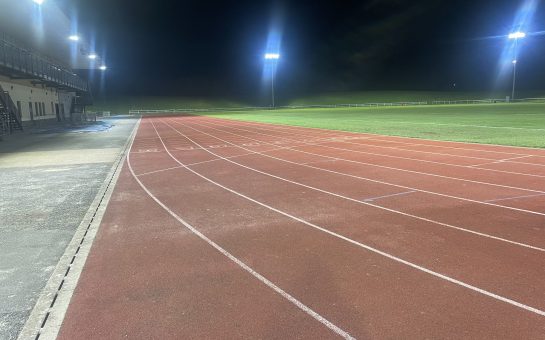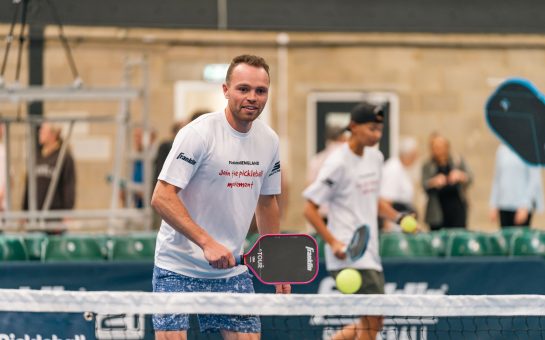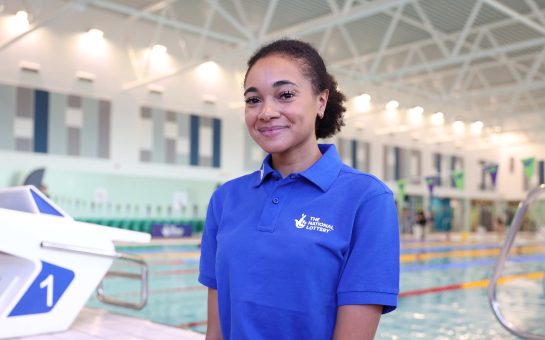More under 25s play basketball than cricket or rugby union.

British basketball faces an uncertain future after UK Sport’s withdrawal of its £7million Olympic funding last month.
Although the decision primarily affects the national side, two senior figures at South West London clubs have highlighted its implications and further problems with support for basketball at the grassroots level.
Andrew Powlesland, Chairman of LSBU Brixton Topcats, says the club are largely untouched by these cuts because money from previous funding programmes never filtered down.
The Topcats instead rely on the work of passionate volunteers, £3 per member session fees and a partnership with London South Bank University to remain solvent and successful.
Wandsworth Wolves similarly have to find funding themselves and are facing the possibility of having to reduce the number of weekly sessions they run for an average of 80 children a week.
Owner and Head Coach Sarah McDermott is incensed by UK Sport’s decision and warns that damaging the top level of the sport could prevent subsequent generations from aspiring to emulate Team GB’s stars.
In January, Sport England announced an additional £2.3million investment in basketball between 2013-2017, aimed directly at increasing participation and developing the foundations of the sport.
However, the money will be given to independent providers instead of the national governing body after Sport England stated they are ‘not confident in England Basketball’s ability to increase the numbers of people playing the sport’.
Mr Powlesland is especially critical of the spending on these schemes instead of existing clubs.
“These are boom and bust interventions. They offer no long term help and detract from the clubs,” he said.
He is unconvinced that such initiatives attract significant amounts of new people to the sport as they can entice players away from their clubs only for them to return after the investment ends.
He adds that while basketball is relatively cheap for players to get involved in, it is expensive for clubs to compete as officials’ fees alone can total £150 per game.
Ms Dermott condemns the policy of providing funding to new projects over established clubs as it drives up competition for limited resources.
“There needs to be a more sustainable approach so that we are not constantly worrying whether our club will be there next week,” she said.
Both Ms McDermott and Mr Powlesland agree that improving the quality of the club and governing body structure is the best way to ensure future success in the sport and maybe even Olympic medals.
This was a key factor in UK Sport’s decision as Liz Nicholl, the chief executive, claimed that to continue funding a sport that is unlikely to produce a medal by 2020, ‘would be a high-risk strategy that compromises opportunities elsewhere.’
The heads of both clubs view this as an unhealthy fixation with medals over inclusivity, which disregards the beneficial aspects of team sport and basketball in particular.
Sport England figures show that more under-25s are involved in basketball than high profile sports such as cricket and rugby union, let alone the more specialised sports of fencing, sailing, and shooting, all of which received a funding boost in UK Sport’s latest annual review.
Mr Powlesland says this shows how basketball is the most inclusive sport in the UK, also pointing to the diverse backgrounds of players and coaches alike.
Ms McDermott added: “This sport makes a big difference to young children, even in their schoolwork. It can change their character and help them become more responsible.”
The extra money made available by Sport England is partly in ‘recognition of its wide appeal to young people and its ethnically diverse participation base.’
Yet for the Topcats and the Wolves it is apparent this financial support is not reaching the young people already playing the sport who need it the most.
British Basketball will appeal against UK Sport’s decision today (March 11) and expect to hear the result on March 19.
They won a similar reprieve last year but Mr Powlesland and Ms McDermott doubt whether it could happen again.
Regardless of the outcome, both LSBU Brixton Topcats and Wandsworth Wolves will continue to make a difference to their communities by their own means.
Photo courtesy of mvongrue, with thanks.
Follow us @SW_Londoner




